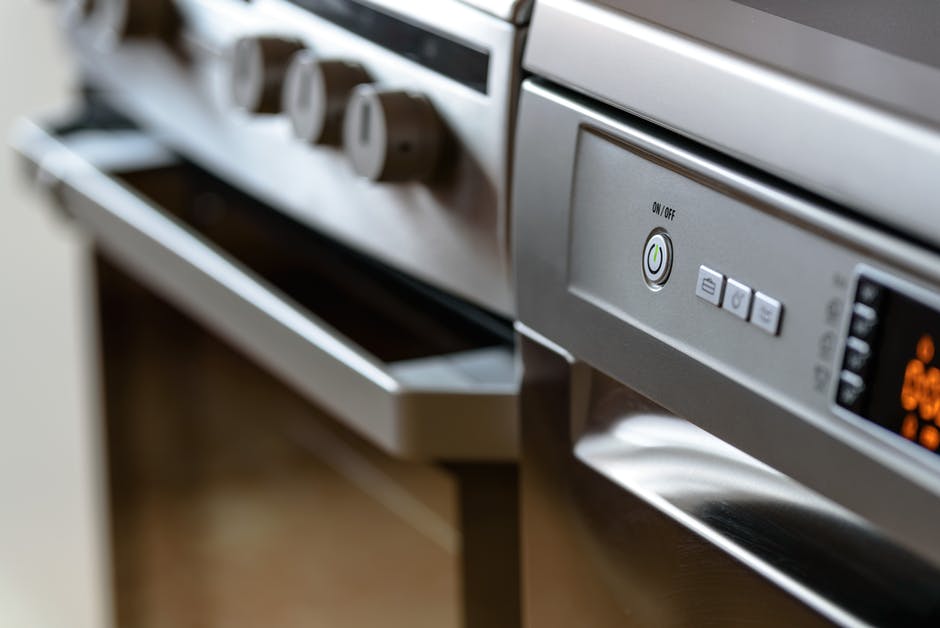Is your home inspector due to come by soon? Not only do they inspect the interior and exterior structure of your home, but they’ll also take a look at appliances as well. Appliances are also a part of your home that needs to be inspected because if they’re not working properly, they could be a potential danger to you or your guest’s safety.
Read on to learn about the likely appliances that home inspectors will take a look at, and what you can do to ensure that each appliance passes their tests!
What Do Home Inspectors Do?
First, it would be helpful to know what a home inspector’s job actually entails. To put it simply, home inspectors are looking out for the homeowner’s safety and anyone who will be living in the home afterward.
They aren’t looking for code violations–that’s the job of a building code inspector. If they do see an element that isn’t within code that they recognize, they may give you their opinions about it. However, this isn’t part of their job.
Home inspectors will look at the entire structure of the home along with almost all elements inside and outside. Inspectors use an “Outside-In, Top-Down” approach that includes the roof all the way down to the basement.
Inspecting Appliances
Since home inspectors are looking at any element that may potentially harm the homeowner, they’ll also look at appliances. However, they won’t look at every appliance.
For instance, home inspectors aren’t required to inspect appliances that aren’t built-in, such as your regular countertop microwave. Refrigerators are often not considered built-in, so they’re also exempt.
Here are some typical appliances that home inspectors will look over so you know what to expect:
- Kitchen range
- Dishwasher
- Built-in microwave
- Food waste disposal
- Range hood
Remember that home inspectors aren’t necessarily experts for each of these appliances. They aren’t employees of the manufacturer and aren’t required to diagnose or repair what’s wrong with them. However, they do a number of tests to make sure each appliance is operational and safe to use.
Passing an Appliance Inspection
Home inspectors may spend a lot of their time in the kitchen because they know it’s where people tend to congregate. This makes it imperative that your kitchen is safe and functional.
Ovens
Home inspectors will turn on the oven and keep it on for about 15 minutes at 350F. While it’s heating up, they will look for rust and broken parts and check that the oven lights work. They’ll also make sure that once 15 minutes has passed, the temperature is within 25 degrees of the set temperature.
Dishwasher
A dishwasher is typically run on normal cycle to ensure that water isn’t leaking. They’ll also close the flap door that’s used for additional detergent to see if it will open.
Range Hood
They will operate all the buttons on the hood to make sure all the lights work as well as the fan levels. They’ll also ensure that it’s not making any unusual noises while the fan is on.
They’ll also want to see that the vent is actually doing its job in capturing cooking grease and steam and properly extracting it outside. The fans and vents of your range shouldn’t just be there for decoration.
Disposal
They will run it and pay attention to see if it’s making any strange noises or vibrations. They’ll also run water and look under the sink to make sure no water is leaking.
Cabinets
Home inspectors will make sure that cabinets are secured safely to the wall. They’ll also open and close doors to make sure they open and close easily.
Refrigerator
Your home inspector may or may not inspect your fridge depending on if it’s considered built-in or not. If they do inspect it, they’ll be looking at the seals to make sure they’re in good condition. They’ll also check the fridge’s coils to ensure it’s cooling correctly.
Common Appliance Defects
Some of the most common defects that home inspectors find once they’re done inspecting the appliances are:
- Range burners that don’t heat properly
- Ovens not working or not warming to the set temperature
- Refrigerators and freezers that aren’t cold enough
- Defective ventilation in ranges
- Broken ice makers
- Dirty refrigerator coils
If your house is on the market, you’ll want to repair as many of these common issues as possible before the home inspector comes. If you can’t, you’ll need to disclose them with each potential buyer so that they know what they’re signing up for once they buy your house.
Thoroughly Inspected Appliances for a Safe Home
Appliances in your home are inspected because their safe operation is necessary for your own safety. For instance, an oven or stove that’s not heating correctly may have issues that need to be uncovered by a professional that could lead to fire damage along the line if they were ignored.
Likewise, water damage from leaky pipes or dishwashers can slowly erode a home’s foundation throughout the years without anyone’s knowledge. Home inspectors are typically the first ones that bring problems to attention before they become huge issues in the future.
Schedule a home inspection with Class Home Inspection today to ensure that your home is safe for potential buyers!

